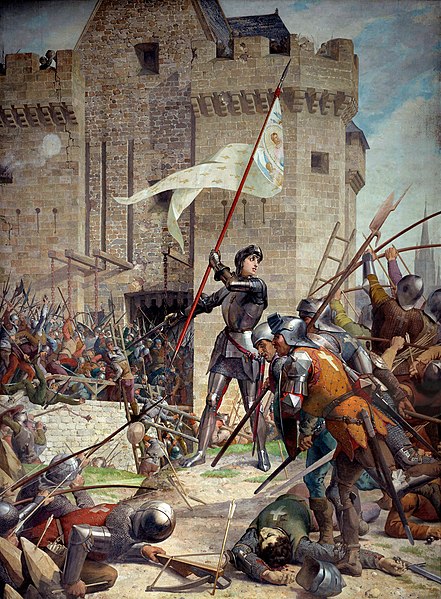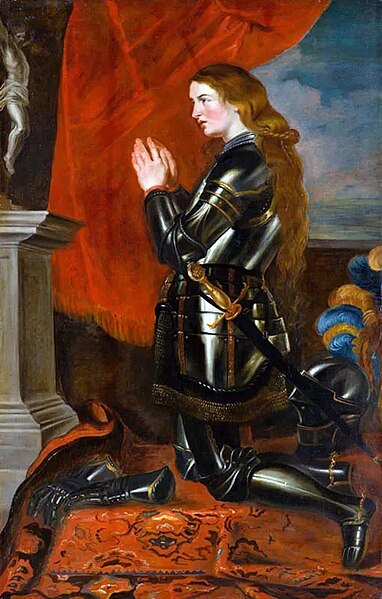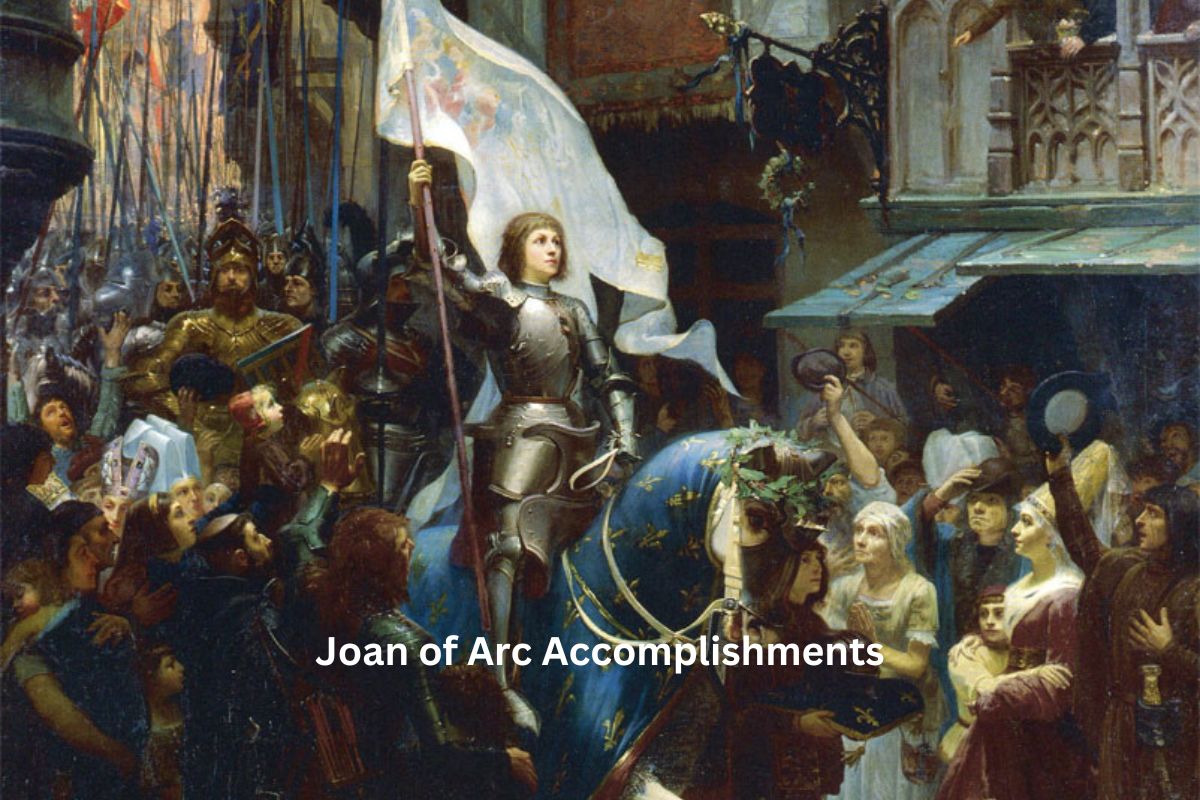Joan of Arc, often referred to as the Maid of Orleans, was a remarkable figure in the 15th century who achieved significant accomplishments during her short but impactful life.
Her story is one of unwavering faith, inspirational leadership, and a steadfast commitment to her mission in the midst of one of history’s most tumultuous periods, the Hundred Years’ War between France and England.
This brief overview delves into the accomplishments and enduring legacy of Joan of Arc, a symbol of courage and patriotism.
Accomplishments of Joan of Arc
1. Leadership in the Hundred Years’ War
At just 17 years old, Joan of Arc convinced the Dauphin of France, the future King Charles VII, to entrust her with leadership in the ongoing Hundred Years’ War.
Also Read: The Hundred Years’ War Timeline
Her leadership was unique as she claimed to be guided by divine voices, which she believed were messages from saints and angels.
Joan led French troops with determination, inspiring them to fight against the English and their Burgundian allies.

2. Liberation of Orléans
One of Joan’s most significant accomplishments was the successful lifting of the English siege of the city of Orléans in 1429.
Also Read: Joan of Arc Timeline
This victory was a turning point in the Hundred Years’ War, as it halted the English advance and renewed French hope.
Joan’s strategic acumen and courage in battle were crucial in breaking the siege.
3. Victory at the Battle of Patay
Joan of Arc’s leadership and military prowess were further demonstrated in the Battle of Patay, which took place in June 1429.
This battle resulted in a decisive French victory over the English forces, thanks in large part to Joan’s tactics and inspirational leadership.
The Battle of Patay solidified her reputation as a skilled military commander and contributed to the eventual French victory in the war.
4. Coronation of Charles VII
Joan of Arc’s mission was to see Charles VII crowned as the rightful King of France. She believed this was her divine purpose.
In July 1429, Joan’s forces succeeded in escorting Charles VII to the city of Reims, where he was crowned in the Reims Cathedral.
This coronation was of immense symbolic importance because it affirmed Charles VII as the legitimate king and helped unify the French nation against English occupation.
5. Inspiration to French troops
Joan of Arc’s unwavering faith and courage served as a source of inspiration to the French troops.
Her presence on the battlefield boosted the morale of soldiers, who believed she was a divine figure sent to lead them to victory.
Joan’s determination to fight for France and her countrymen had a galvanizing effect, helping to invigorate the French forces.
6. Symbol of patriotism
Joan of Arc’s actions and unwavering commitment to her mission made her a symbol of French patriotism and resistance.
During a time of foreign occupation and turmoil, she became a rallying point for those who sought to defend France and its sovereignty.
Her selflessness and bravery in the face of adversity resonated with many, reinforcing the idea of French identity and pride.

7. Capture and trial
After a series of military successes, Joan of Arc was eventually captured by the Burgundians in 1430.
She was later sold to the English, who saw her as a threat to their control over France.
Joan’s capture marked a turning point in her life, leading to her subsequent trial.
8. Martyrdom
Joan of Arc’s trial was highly controversial and is often viewed as a politically motivated effort to discredit her.
In 1431, she was found guilty of charges that included heresy and cross-dressing, and she was sentenced to be burned at the stake.
Her execution took place on May 30, 1431, in Rouen, France. Joan faced her death with remarkable courage and dignity.
Her martyrdom only added to her mystique and made her a symbol of resistance and faith.
9. Posthumous rehabilitation
Following her death, Joan of Arc’s reputation gradually underwent a transformation.
In a posthumous trial held in 1456, she was declared innocent of the charges brought against her.
The trial’s verdict overturned the earlier conviction, acknowledging that she had been unjustly accused and executed.
10. Canonization as a saint
In recognition of her enduring significance and her role as a symbol of faith and patriotism, Joan of Arc was beatified by the Roman Catholic Church in 1909.
She was canonized as a saint in 1920 by Pope Benedict XV.
Her canonization confirmed her status as one of France’s patron saints and a beloved figure in Catholicism.
